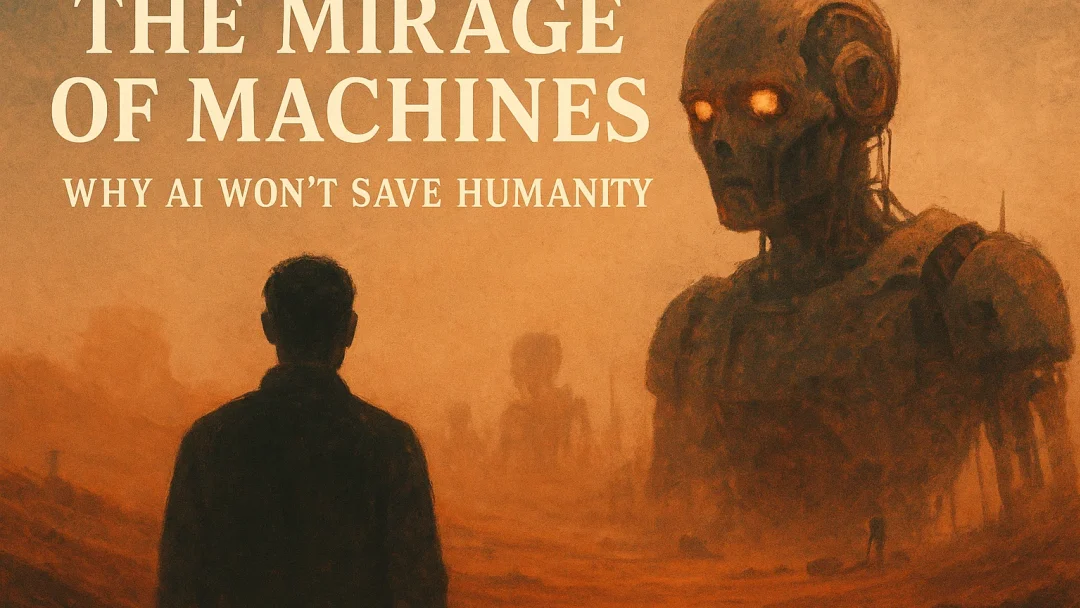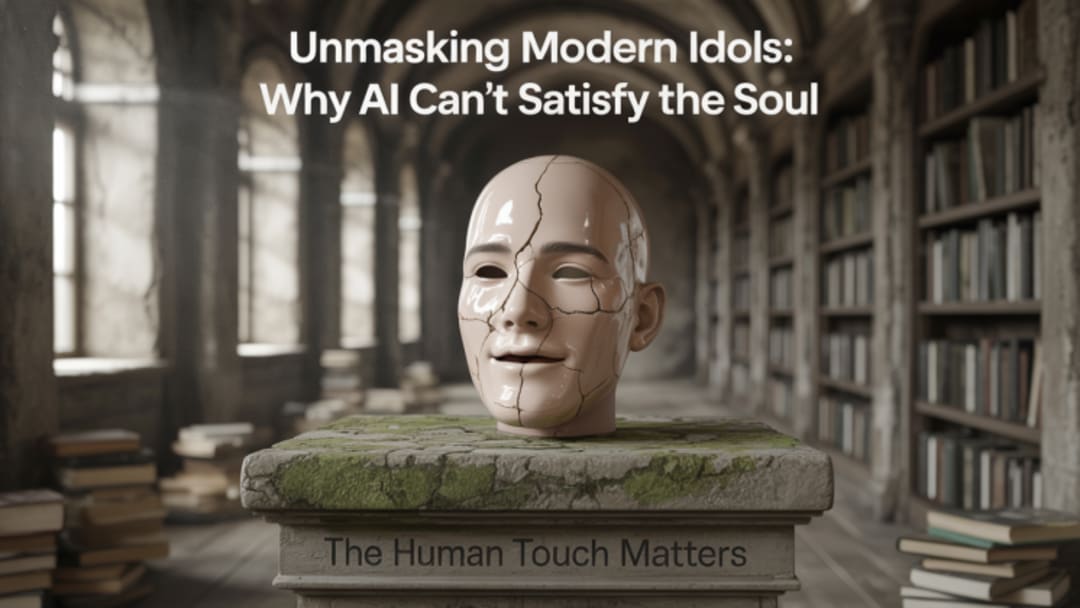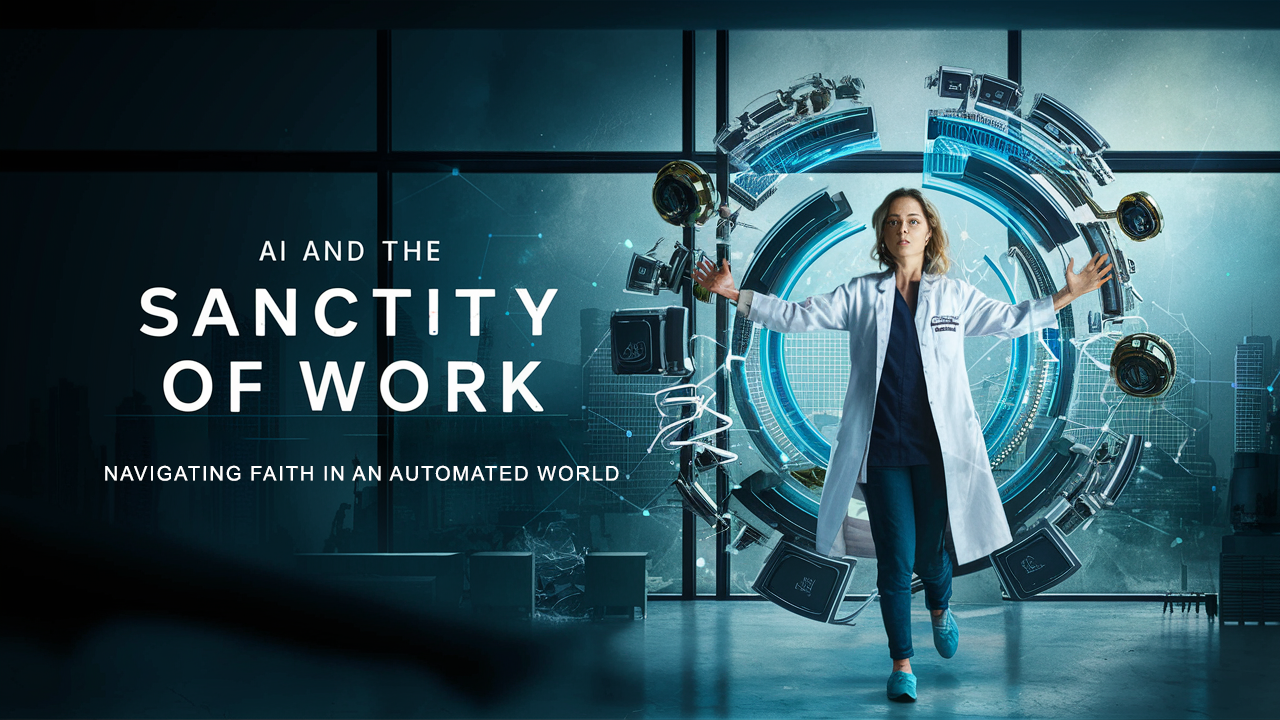Let's be blunt: Artificial Intelligence will not save us. In a world teetering on the brink of multiple crises butclimate catastrophe, geopolitical instability, economic disparity, and a pervasive sense of existential dread,the siren song of AI as our impending savior is growing louder. We are told it will solve hunger, cure disease, end war, perhaps even conquer death itself. This is not just optimistic technological forecasting; it is a dangerous, modern iteration of an ancient human folly: the worship of created things over the Creator. This series, "AI Won't Save Us," will aggressively dismantle this techno-idolatry, starting with a hard look at the false promises being peddled and the theological quicksand on which they stand.
The Mirage of Machines: Humanity, flawed and fumbling, finally creates a mind greater than its own.a benevolent, superintelligent force capable of untangling our most complex problems and ushering in an age of unprecedented peace and prosperity. This vision, promoted by tech gurus, futurists, and a surprising number of otherwise sober-minded individuals, paints AI as the ultimate answer, the culmination of human progress, the hero arriving in the final act to redeem our troubled story.
This is a lie.
It's a sophisticated, silicon-spun iteration of the oldest temptation: to find salvation in something other than God. It's the Tower of Babel rebuilt with algorithms and neural networks, human ambition and a profound misunderstanding of who we are, what our deepest problems truly are, and where ultimate hope resides. As Christians, we are called to challenge these false gospels with courage and clarity, because we are pro-humanity in the truest sense,a humanity created by God, for God, and ultimately redeemed by God alone.
The Ancient Ache: Humanity's Penchant for Idolatry

Before we dissect the specific claims of AI salvation, we must understand the fertile ground in which such ideas take root. Humanity has always been prone to idolatry. From golden calves in the wilderness to the sophisticated philosophical systems of ancient Greece, from the emperor cults of Rome to the nationalistic fervor of modern states, we have a tragic talent for elevating created things to the status of deity.
The prophet Isaiah masterfully exposed the absurdity of this in his time:
"He cuts down cedars, or he chooses a cypress tree or an oak and lets it grow strong among the trees of the forest. He plants a cedar and the rain nourishes it. Then it becomes fuel for a man. He takes a part of it and warms himself; he kindles a fire and bakes bread. Also he makes a god and worships it; he makes it an idol and falls down before it. Half of it he burns in the fire. Over the half he eats meat; he roasts it and is satisfied. Also he warms himself and says, 'Aha, I am warm, I have seen the fire!' And the rest of it he makes into a god, his idol, and falls down to it and worships it. He prays to it and says, 'Deliver me, for you are my god!'" (Isaiah 44:14-17, ESV)
Isaiah's critique is scathing: humans take a common material, use part of it for mundane purposes, and then irrationally declare the remainder a god, expecting deliverance from it. The object itself is not the primary problem; the misplaced worship, the desperate cry of "Deliver me!" to an inanimate object, is the core issue.
Theologian John Calvin, in his Institutes of the Christian Religion, famously stated that the human heart is a "perpetual factory of idols." We are constantly seeking something to worship, something to give us meaning, security, and hope. If it's not God, it will be something else.power, wealth, pleasure, the state, and yes, technology.
AI is, in many ways, the ultimate idol for a technologically advanced, spiritually adrift age. It's complex, powerful, seemingly intelligent, and promises to reshape our world. It appears to offer control over our destiny, solutions to our suffering, and even a path to transcending our human limitations. But like the idols of old, it is still a product of human hands and human minds, reflecting our biases, our limitations, and our fallen nature. To expect salvation from AI is to expect a block of wood, however intricately carved, to solve the problem of sin.

The Grand Illusions: What AI "Salvation" Promises
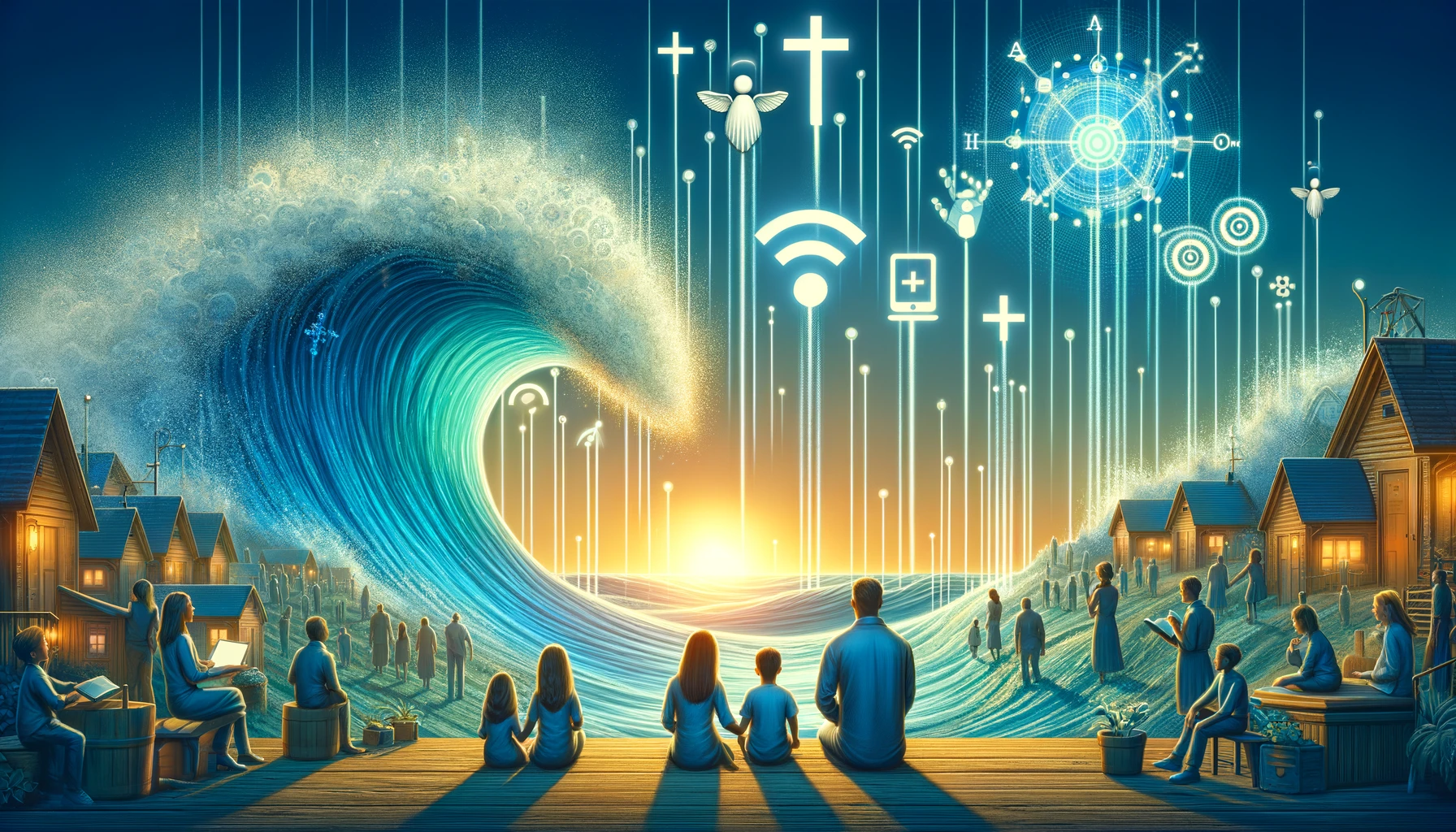
The proponents of AI as a savior, whether explicitly or implicitly, are tapping into humanity's deepest longings. Let's examine some of the grand challenges AI is supposed to conquer and why these hopes, from a Christian perspective, are fundamentally misplaced when framed as ultimate solutions.
1. The End of Scarcity and Suffering (Poverty, Hunger, Disease)?
The Promise: AI will optimize resource allocation, revolutionize agriculture, design miracle drugs, and manage global supply chains with such efficiency that poverty, hunger, and disease will become relics of the past. AI-powered healthcare will provide personalized treatments, extending lifespans and eradicating ailments that have plagued humanity for millennia.
The Problem: This vision misunderstands the root causes of much of human suffering.
- Sin and Selfishness: While technology can undoubtedly improve food production and distribution, global hunger today is often more a problem of political instability, conflict, corruption, and inequitable distribution than sheer lack of resources. As Jesus said, "The poor you will always have with you" (Matthew 26:11), as a recognition of the persistent reality of human brokenness and the ongoing need for compassion and justice. AI, designed and deployed by fallen humans, will inevitably be shaped by these same dynamics. Will AI algorithms truly prioritize the needs of the poorest, or will they be optimized for the profit of those who own the technology?
- The Limits of Physical Healing: The desire to eradicate disease is noble. Christians should rejoice in medical advancements that alleviate suffering. the ultimate "disease" humanity faces is spiritual,the disease of sin, which leads to spiritual death. No algorithm can cure this. , a world without physical suffering, achieved by purely technological means, does not equate to a world without spiritual emptiness or moral decay. Even if AI extends our lifespans significantly, it cannot answer the question of what that life is for.
"For what will it profit a man if he gains the whole world and forfeits his soul? Or what shall a man give in return for his soul?" (Matthew 16:26, ESV)
A Christian Perspective: Our ultimate hope is in the redemptive work of Christ, which promises a new heaven and a new earth where "He will wipe away every tear from their eyes, and death shall be no more, neither shall there be mourning, nor crying, nor pain anymore, for the former things have passed away" (Revelation 21:4). This is a divine promise, not a technological projection. Our role now is to alleviate suffering as an act of love and obedience, using the tools God provides, including technology, but without mistaking these tools for the ultimate Healer or Provider.
2. The Achievement of Global Peace and Harmony?
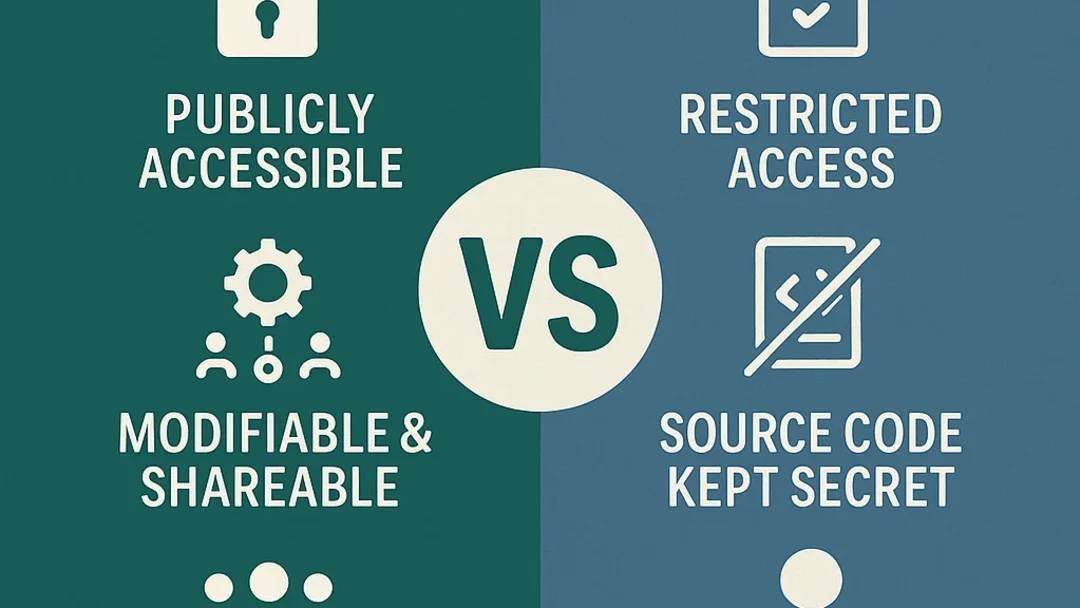
The Promise: AI will mediate conflicts, identify threats before they escalate, create perfectly just legal systems, and foster understanding between diverse peoples by removing biases and optimizing for cooperative outcomes. AI could even manage global governance, making decisions based on pure data and logic, free from petty human emotions and political squabbles.
The Problem: This is a dangerously naive understanding of peace and conflict.
- The Human Heart: The root of conflict is not primarily a lack of information or inefficient systems; it is, as James 4:1-2 states, the warring desires within the human heart: "Is it not this, that your passions are at war within you? You desire and do not have, so you murder. You covet and cannot obtain, so you fight and quarrel." Can AI change the human heart? Can it eradicate greed, envy, lust for power, or tribal hatreds? To believe so is to ascribe to it powers that belong to God alone through the transforming work of the Holy Spirit.
- Whose Justice? Whose Peace? An AI programmed to create "peace" or "justice" will inevitably reflect the values and biases of its programmers. Whose definition of peace will it enforce? The idea of a purely objective, data-driven governance free from values is a myth. Values are embedded in every decision, every algorithm. Entrusting our future to a supposed AI overlord, however benevolent its creators intend it to be, is an abdication of human moral responsibility and potentially a path to a new form of tyranny.
- The Illusion of Control: The belief that we can engineer a perfect, conflict-free society through technology reflects a desire for total control that is ultimately illusory. True peace, shalom, is the presence of flourishing, justice, and right relationships andwith God and with one another. This cannot be algorithmically generated.
A Christian Perspective: True peace comes from the Prince of Peace, Jesus Christ (Isaiah 9:6). It begins with reconciliation with God, which then flows into reconciliation with others. While we are called to be peacemakers (Matthew 5:9) and to work for justice using all ethical means available, we know that ultimate, lasting peace will only be fully realized in Christ's kingdom. To expect AI to achieve what only Christ can is to set ourselves up for profound disappointment and to devalue the unique, relational work of peacemaking that requires empathy, sacrifice, and love,qualities no machine can possess.
3. The Conquest of Mortality and Meaning?
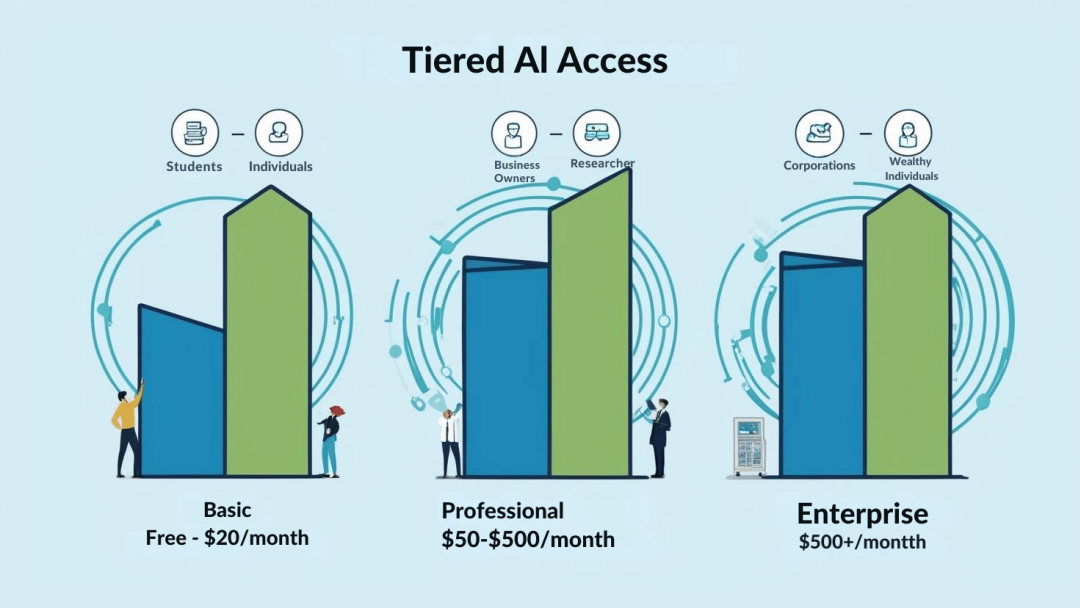
The Promise: AI will unlock the secrets of aging, enabling radical life extension or even digital immortality where consciousness can be uploaded to a server. Beyond mere survival, AI will help us solve the deepest mysteries of the universe, providing answers to age-old philosophical questions and thereby bestowing a new sense of meaning and purpose.
The Problem: This is perhaps the most audacious and spiritually perilous of AI's false promises.
- The Fear of Death and the Lie of Immortality: The human desire to conquer death is ancient. The serpent's lie in the Garden was, "You will not surely die" (Genesis 3:4). The pursuit of technological immortality is a modern echo of that same deception. It seeks to overcome our creaturely limits by our own power, rather than accepting the reality of our mortality and finding hope beyond it in God. From a Christian viewpoint, physical death is a quality of relationship with God through Christ (John 17:3).
- Meaning as a Calculation: The idea that AI can compute "meaning" or "purpose" reduces human existence to a data problem. True meaning is in relationship butwith God and with others. It is found in love, service, sacrifice, and worship. These are not outputs of an algorithm; they are expressions of a soul created in God's image.
"He has made everything beautiful in its time. Also, he has put eternity into man's heart, yet so that he cannot find out what God has done from the beginning to the end." (Ecclesiastes 3:11, ESV) This "eternity in man's heart" is a God-given longing that only God can satisfy. AI, no matter how advanced, will always be a finite tool trying to grasp the infinite.
A Christian Perspective: Our hope for overcoming death and finding ultimate meaning is in the resurrection of Jesus Christ. He is "the resurrection and the life" (John 11:25). Through faith in Him, we are promised a transformed, glorified eternal life in God's presence. This is a hope that addresses its sting, which is sin (1 Corinthians 15:55-57). Any promise of immortality that does not deal with sin is a shallow and ultimately futile one.
The Assertive Stance: We are created in God's image (Genesis 1:27), with inherent worth and purpose. Technology should serve humanity, not the other way around. And what are the real dangers if we continue down this path of technological idolatry?
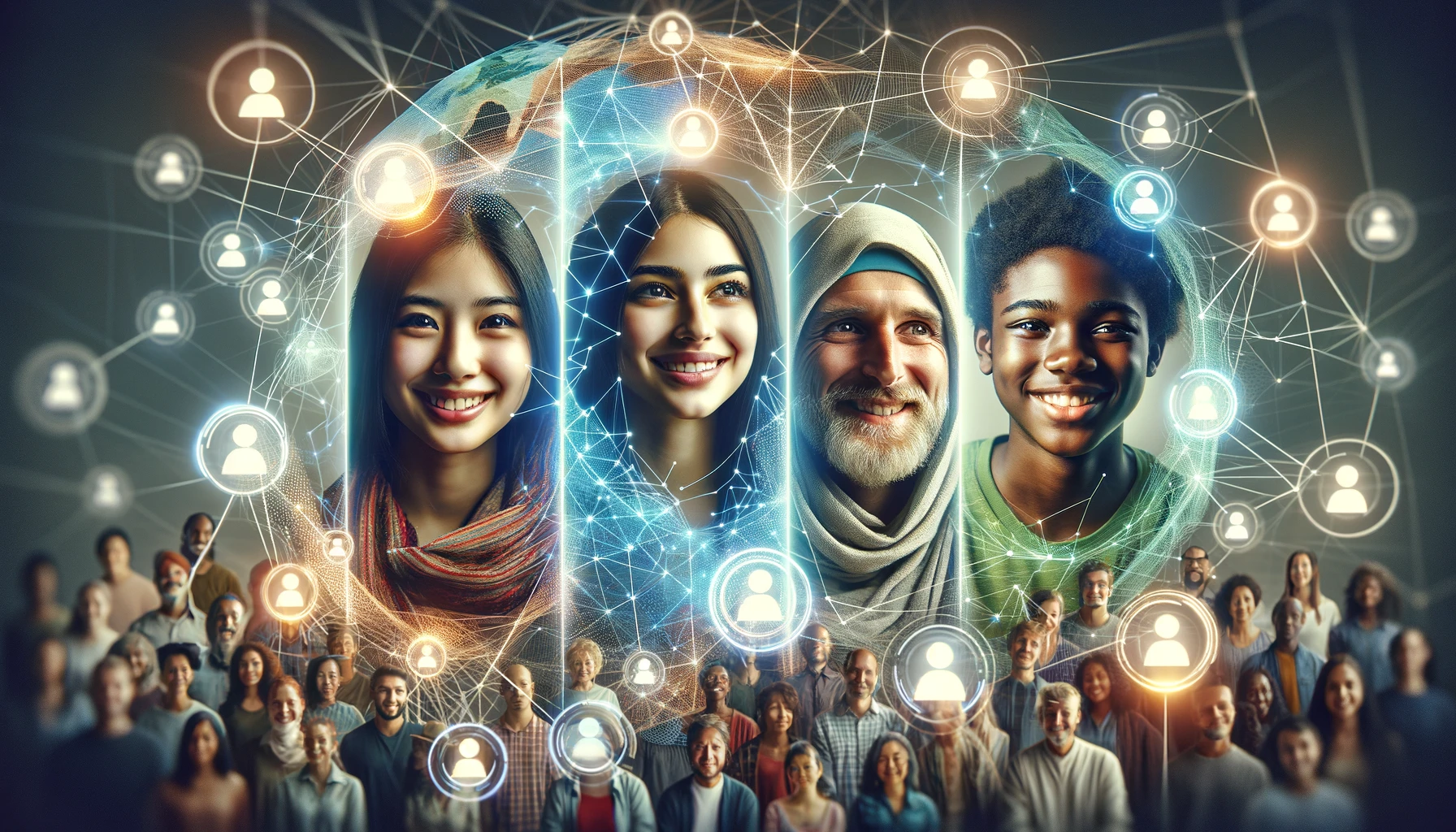 This first installment has laid the groundwork by challenging the AI savior narrative head-on and framing it within the historical and theological context of idolatry. We've seen how the grand promises of AI salvation often misdiagnose the nature of our deepest problems andproblems that are fundamentally spiritual and moral, not merely technical.
This first installment has laid the groundwork by challenging the AI savior narrative head-on and framing it within the historical and theological context of idolatry. We've seen how the grand promises of AI salvation often misdiagnose the nature of our deepest problems andproblems that are fundamentally spiritual and moral, not merely technical.
In Part 2 of "AI Won't Save Us," we will explore:
- The Nature of True Salvation: How does it address the core human condition in ways AI never can?
- The Proper Role of Technology: If not our savior, what is the appropriate and beneficial role for AI and other technologies within a Christian worldview? How can we be faithful stewards of these powerful tools?
- Specific Dangers of Deifying AI: Beyond false hope, what are the tangible ethical, social, and spiritual risks of placing our ultimate trust in AI? How might this idolatry manifest in harmful ways?
- Cultivating Wisdom and Discernment: The allure of a technological savior is strong, especially in an age of uncertainty. But it is a mirage, promising deliverance yet leading only to deeper spiritual thirst. Our task is to point beyond the shimmering illusions of machine-made utopias to the living water offered by Christ alone. The future of humanity depends on the orientation of our hearts.
FAQs
Q1: Is this article saying that AI is inherently evil or that Christians should avoid using it? A1: Absolutely not. This article is not condemning AI as a technology. AI has the potential for enormous good when developed and used responsibly and ethically for specific tasks.from medical diagnostics to resource management to creative assistance. The argument is against the deification of AI, the narrative that frames it as an ultimate savior for humanity's deepest problems. It's about where we place our ultimate hope and trust. Using AI as a tool is one thing; worshipping it as a god is another.
Q2: Aren't you just being pessimistic? What if AI really could solve some of these major global problems? A2: It's about theological realism and a proper diagnosis of human nature and our core problems. AI may contribute to solving aspects of global problems, and we should welcome such contributions. For example, AI might help develop more resilient crops or identify patterns in disease outbreaks. the assertion here is that AI cannot solve the root causes of many of these problems, which are often moral and spiritual (e.g., greed, conflict, injustice, the human propensity for sin). , it cannot address our deepest existential needs for meaning, purpose, and reconciliation with God. True hope must be grounded in something more profound than technological capability.
Q3: Many people don't believe in God. Isn't AI their best hope then? A3: For those who do not believe in God, the allure of AI as a savior might seem like the best or only hope. This article is written from an explicitly Christian worldview to challenge that notion, particularly for those within the faith and to offer a different perspective to those outside it. It argues that even from a purely secular humanist standpoint, an over-reliance on AI as a savior carries significant risks (concentration of power, algorithmic bias, erosion of human agency, etc.). the core theological argument is that humanity's deepest longings are spiritual and can only be met by the Creator, not by a creation, however sophisticated. For Christians, pointing to this truth is an act of love and witness.
